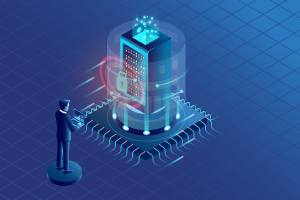Since 2009, TCG has talked about the many benefits of SEDs, or self-encrypting drives. These little wonders encrypt data on the fly, constantly, with no impact on drive or system performance and without user intervention. More and more vendors, from HDD, SSD and other storage vendors to third party software applications, now offer SEDs or management applications for them via a number of PC and system OEMs and now, directly to consumers.
Among the many vendors supporting SEDs include Samsung with SSDs along with Seagate, HGST, Toshiba, Crucial, Intel, Kingston, Micron, SK Hynix, CMS Products and many more. Wave Systems, WinMagic and others provide management applications.
Samsung recently created a fabulous infographic it created on the many benefits of SEDs. Some takeaways:
– 267 million data breaches 2012
– Average cost per breach is $5.4 million
– SEDS have encryption right in the drive meaning no performance hit and users can’t turn it off, as often happened traditionally with SW encryption
– Drives can be sanitized almost instantaneously
Samsung notes that SEDs are less than .80 cents per gigabyte, so any argument about cost is negated.
Samsung’s blog post is available here.



